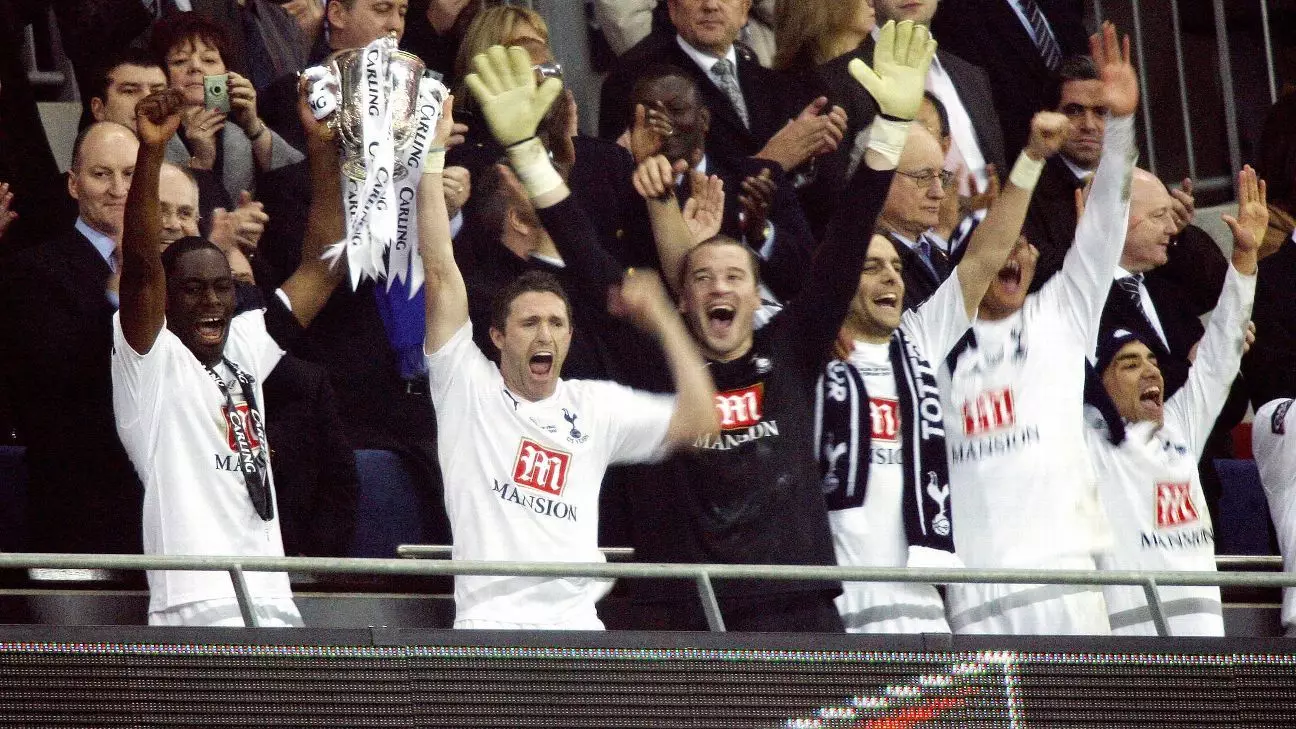Tottenham Hotspur, a name steeped in the rich tapestry of English football, finds itself shrouded in a persistent trophy drought that has now become a defining element of its contemporary saga. For over a decade and a half, the club has wandered through the wilderness of competitive football without attaining a tangible prize. This quest for silverware not only poses immense pressure on the club’s management and players but also casts a long shadow on its illustrious history.
Tottenham Hotspur’s storied past is one of remarkable achievements interlaced with periods of inconsistency. In the 1960s, the club was a titan of English football, dominating competitions and becoming notably the first side in the 20th century to complete the coveted ‘double’ by winning both the League title and the FA Cup in the 1960-61 season. This era marked Spurs as a force, showcasing their ability to win prestigious titles. Fast forward to today, and despite the club’s historical success, the gap between ambition and achievement has widened considerably.
Spurs have excelled in knockout competitions, boasting eight FA Cups, four Carabao Cups, and two UEFA Cups among their honors. Yet, the persistent absence of league titles, especially the Premier League, remains a glaring statistic. The closest the club came to clinching the Premier League since its inception was during the 2016-17 season, where they ultimately finished nine points behind the champions, Chelsea.
The continuous lack of silverware has created a heavy burden for each of Spurs’ eight post-Ramos managers who have attempted to rectify this misfortune. Each tenure is punctuated by an underlying imperative: to deliver trophies. This unrelenting pressure has manifested in various ways, ranging from managerial dismissals to fleeting moments of hope dashed in high-stakes matches. The club’s last silverware, the Carabao Cup, was claimed back in 2008. Under the management of Juande Ramos, Spurs secured a dramatic 2-1 victory against Chelsea in a hard-fought final, a triumph that now stands as a historical anomaly in a long drought period.
In light of this enduring struggle to reclaim glory, the arrival of Ange Postecoglou marks a potential turning point for the North London club. Having previously enjoyed success in various international settings—most notably in Australia, Japan, and Scotland—Postecoglou brings a refreshing style of football along with a tenacious ambition to restore Spurs’ place among England’s elite clubs. His strategies emphasize attacking play and fluidity, a style that resonates with the club’s traditional ethos which venerates attractive and enjoyable football.
Yet, will he succeed where others have faltered? History reminds us that success is often fleeting, and implementing a winning philosophy requires patience, resources, and a bit of luck. Postecoglou’s challenge is not merely to implement his tactical ideologies but to do so while managing the weight of expectations that accompany Spurs’ storied legacy.
As Spurs continue to navigate this turbulent chapter, crucial decisions lie ahead. The club’s infrastructure, including its impressive new stadium, is set to play a pivotal role in attracting top-tier players and retaining emerging talent. However, success on the pitch remains the ultimate metric. Without tangible achievements, the inner turmoil can easily overshadow the positives—turning a hopeful narrative into a cautionary tale about unfulfilled potential.
The 2018-19 season did provide a glimmer of hope as Spurs reached the Champions League final, only to be thwarted by Liverpool. That campaign encapsulated the exhilarating highs and crushing lows synonymous with Spurs’ journey. It solidified the need for the club to build upon that success rather than allow it to fade into obscurity.
Tottenham Hotspur remains a club steeped in history yet grappling with the challenge of translating that heritage into contemporary success. The quest for silverware is not merely about tallying trophies but is deeply intertwined with the identity of the club and its supporters. As an exciting new era under Postecoglou begins, the upcoming seasons could determine if Spurs will break their cycle of drought or continue to be haunted by the specter of unfulfilled promise, forever chasing the glory that once defined them.
